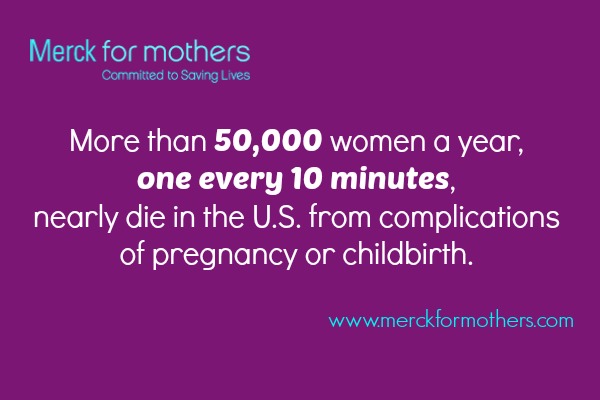I remember about a year ago getting a frantic call from one of my really good friends because the wife of a family member had just passed away after giving birth to their second child. This happened here…in the states…in the United States of America. Prior to this incident, I was completely in the dark about the reality of this situation. And apparently, it’s a lot more common than we are led to believe. Maternal Mortality is definitely not something that my OBGYN discussed with me during my monthly checkups. Nor did I think anything of it because I didn’t think it was something that was still happening in this day and age.
Did you know that nearly 800 women die each day from complications during pregnancy and childbirth right here in the US?
Most of these deaths are preventable. In the U.S., the rate of deaths from complications of pregnancy and childbirth has nearly doubled in the past 20 years.
My sister was one of those who could’ve died after giving birth to her last born. She seemed fine after coming home from the hospital. Then after a few days, we started noticing the large amount of fluid she had been retaining, particularly in her legs. She ended up needing to receive an ICD for her irregular heartbeats, which has since been removed. We are truly blessed that it was not worse than it was, although it was a scary time.
More than 50,000 women a year, one every 10 minutes, nearly die in the U.S. from complications of pregnancy or childbirth.
Check out the video and transcript below to find out more:
Dr. Agrawal: Hello MomsNCharge, my name’s Doctor Priya Agrawal. I’m OBGYN and executive director of Merck for Mothers.
Alma Roberts: Good morning MomsNCharge, I’m Alma Roberts, CEO of Baltimore Healthy Start.
Dr. Agrawal: So we’re going to start with your questions.
Moms ‘N Charge: What is maternal mortality?
A: A maternal death is when a woman dies of complications during pregnancy in her childbirth, or within the six weeks after the end of her pregnancy.
Q: With all of the medical advances these days, women aren’t still dying in childbirth in the U.S. are they?
A: Great question. When you think of a woman dying during pregnancy and childbirth, you think it’s something that happens over there in the developing world, not in our very own backyard in the United States. But I think you’ll be shocked to hear that in the last 20 years, the rates of maternal death have doubled in this country, despite there being credible progress and declining rates than the rest of the world. And the deaths are just the tip of the iceberg. Every 10 minutes, a woman in this country experiences life threatening complications that she nearly dies of during pregnancy and childbirth. So in a country where we spend $111B on childbirth related care, we’re ranking 47th out of all the countries in the world. That is behind most industrialized nations. What we consider to be really tragic about these sobering statistics is that the majority of these deaths are completely preventable.
Q: What are the leading complications that affect women in pregnancy in childbirth?
A: The three leading complications are pulmonary embolism, so that’s when you develop a blood clot often in the leg that travels up to the lung, similar to the blood clot many of us develop on a long haul flight or can develop. The other two causes are exactly the same as in the developing world. That is postpartum hemorrhage, which is excessive bleeding during pregnancy and childbirth, or just after, and preeclampsia, which is disorders of severe high blood pressure during pregnancy and childbirth.
Q: What is the cause of these complications and steps where we can take to avoid these complications, if any?
A: It’s important to mention here that there is a rise in chronic conditions in this country. We talk about obesity; 1 in 3 American women is obese. Diabetes, high blood pressure. So these kinds of chronic conditions actually put women at higher risk of developing complications during pregnancy and childbirth.
Have you heard of Merck for Mothers? What have you heard about maternal mortality?






No Comments